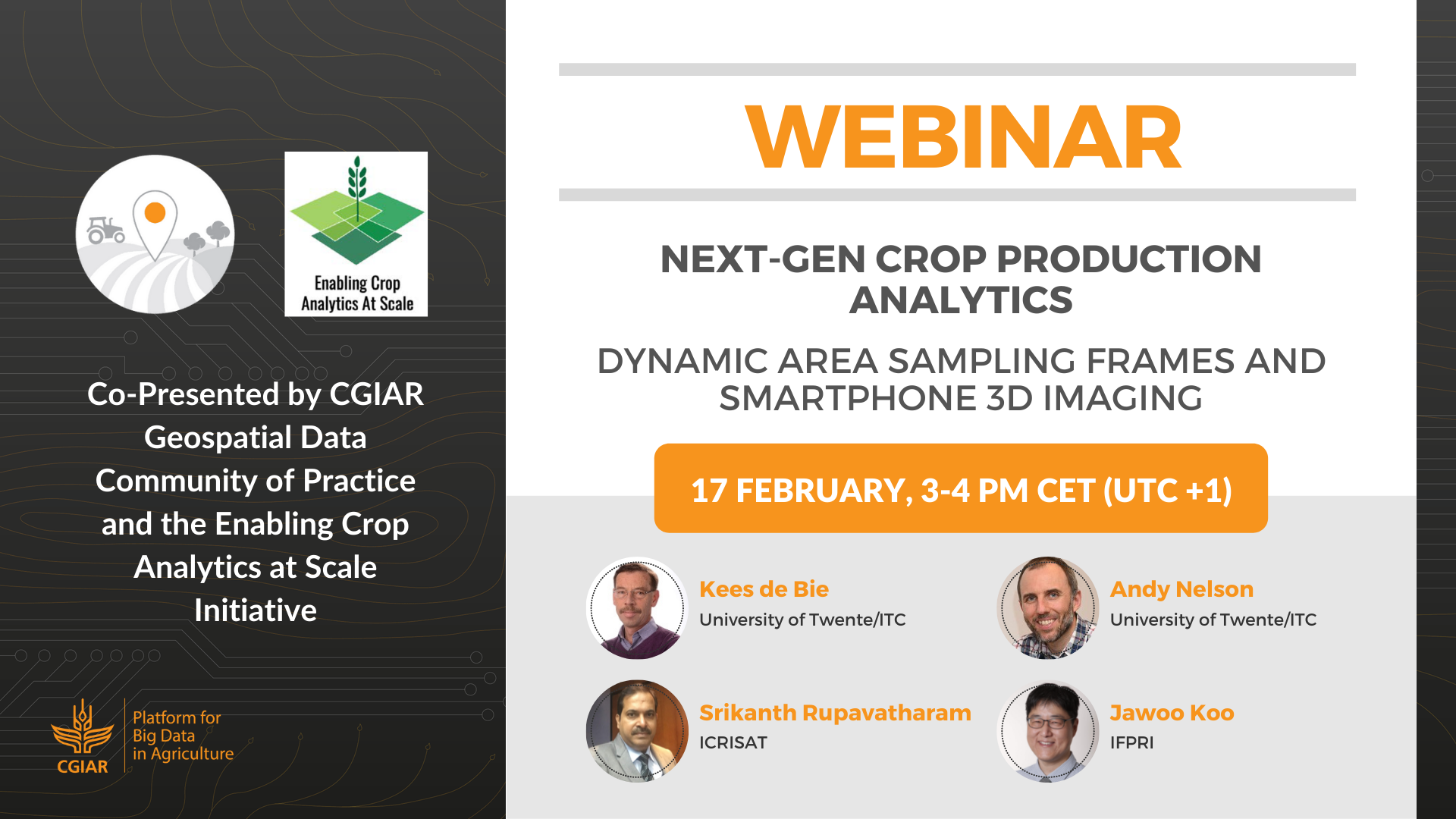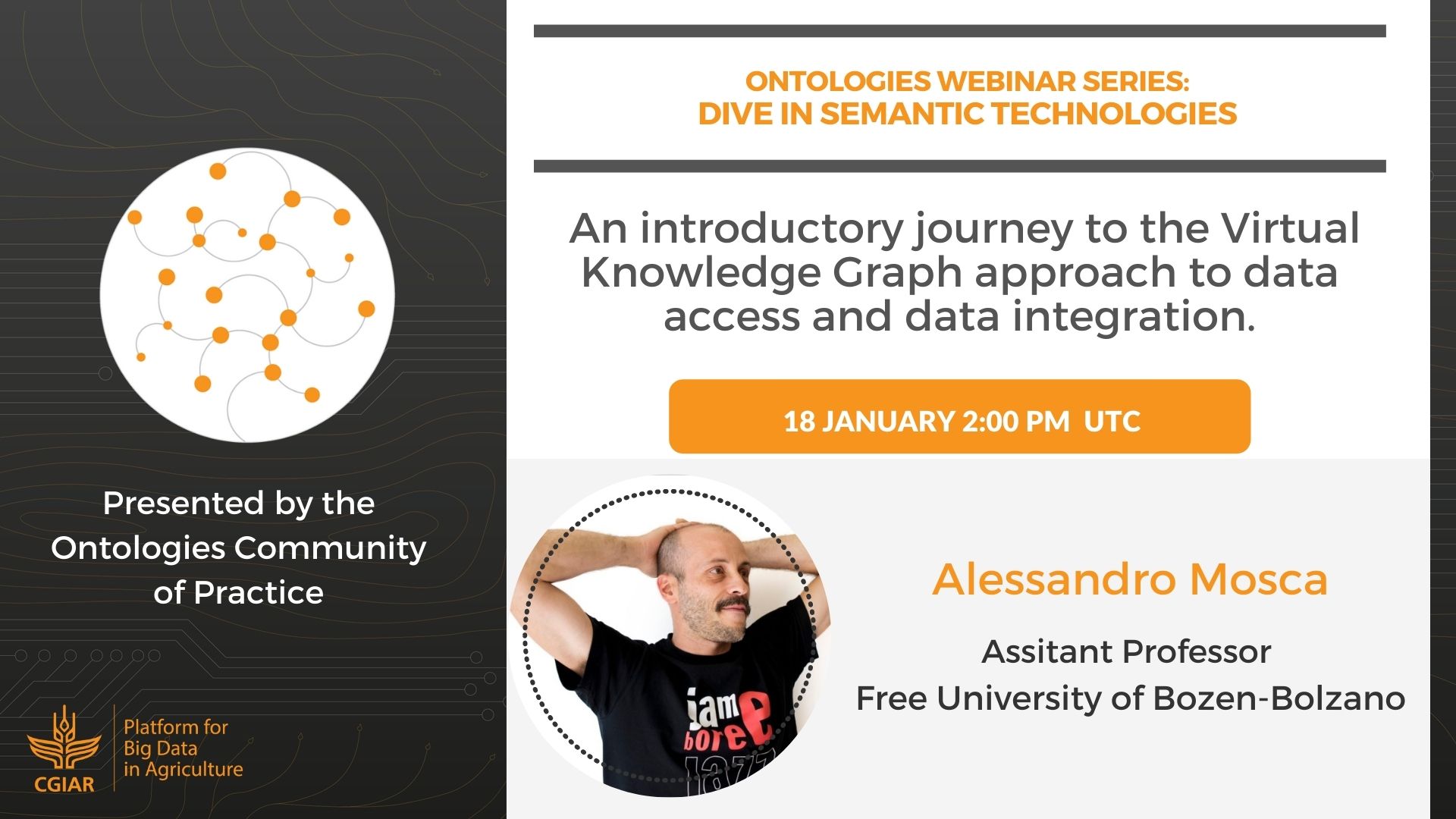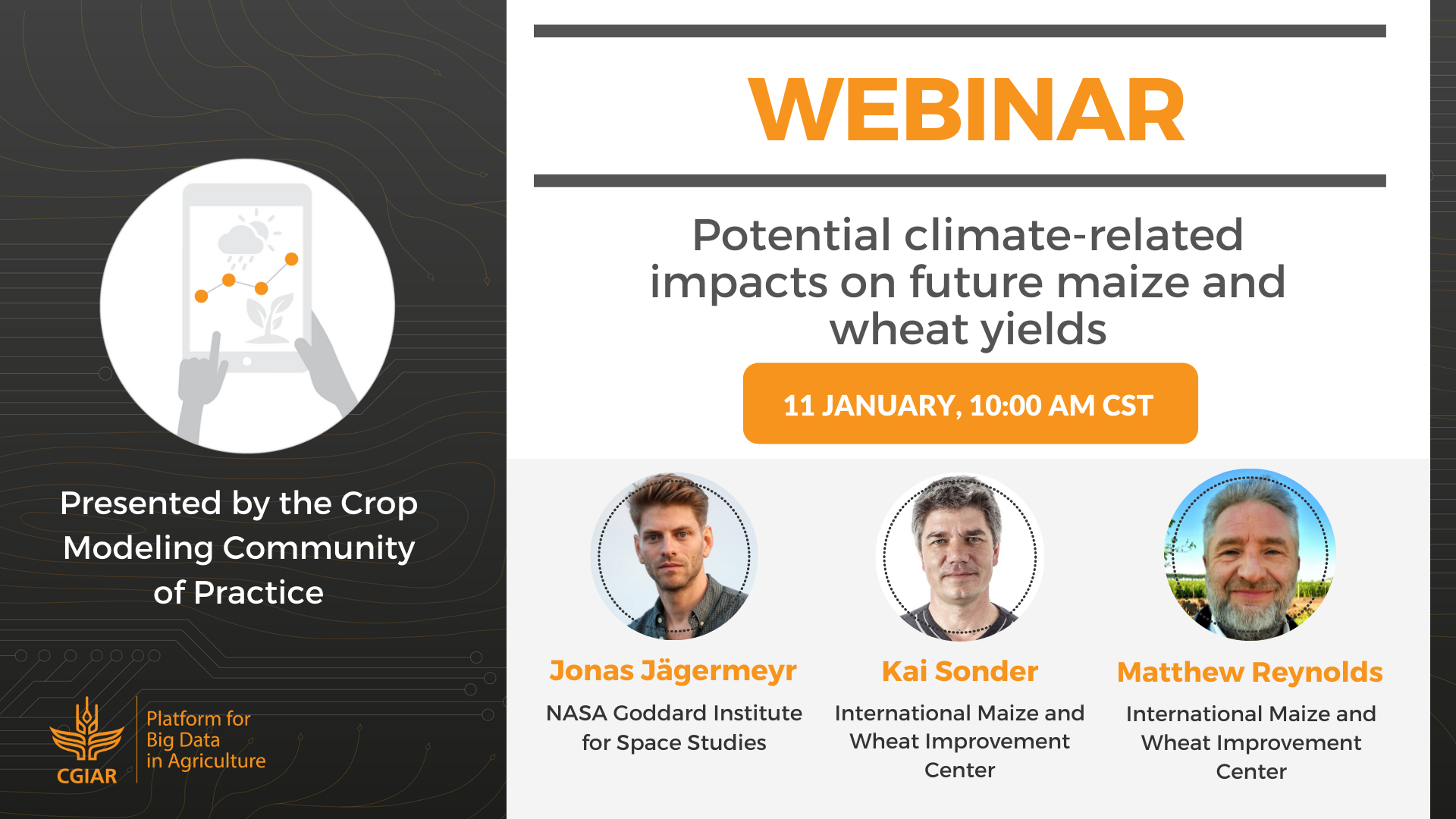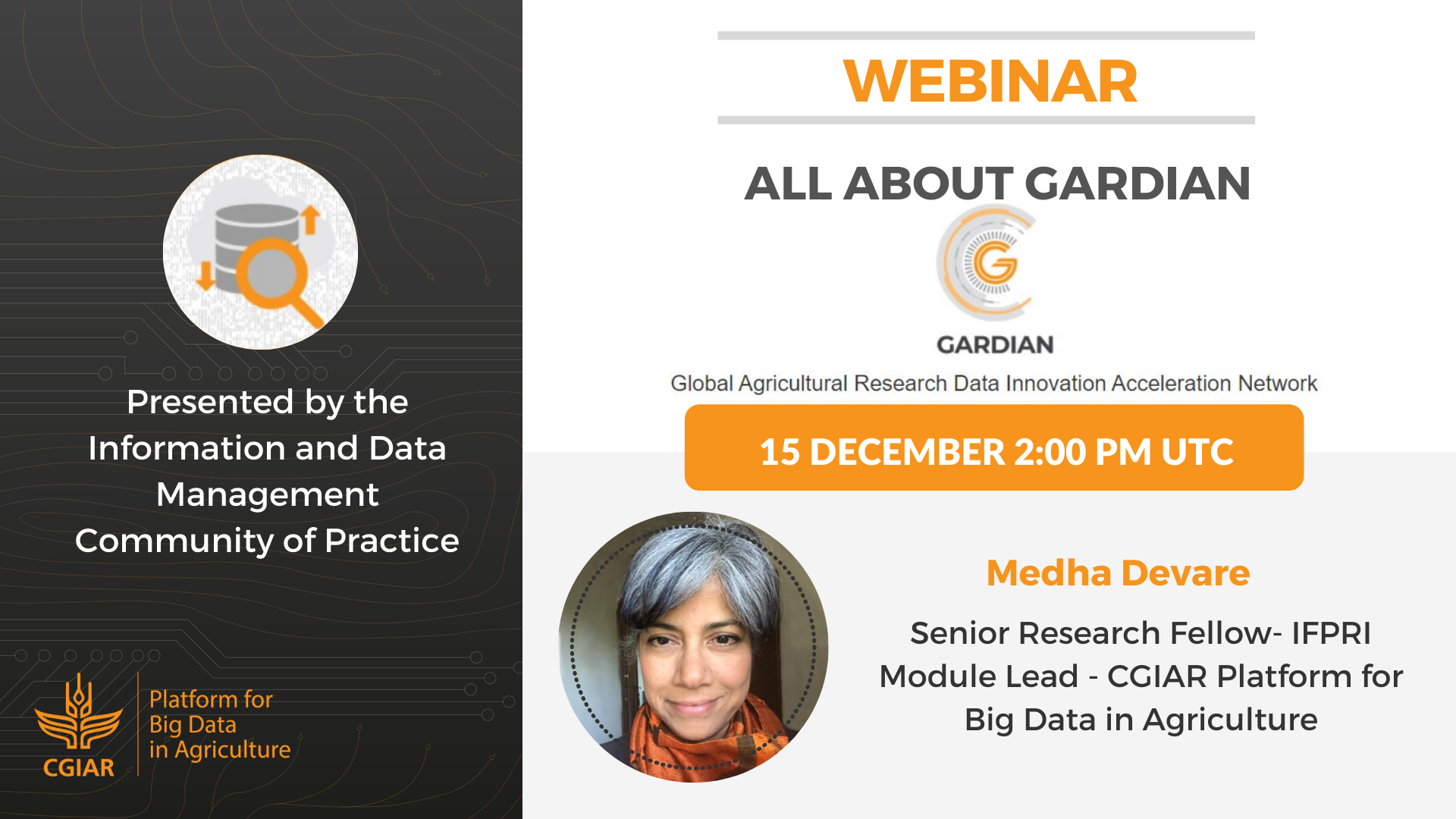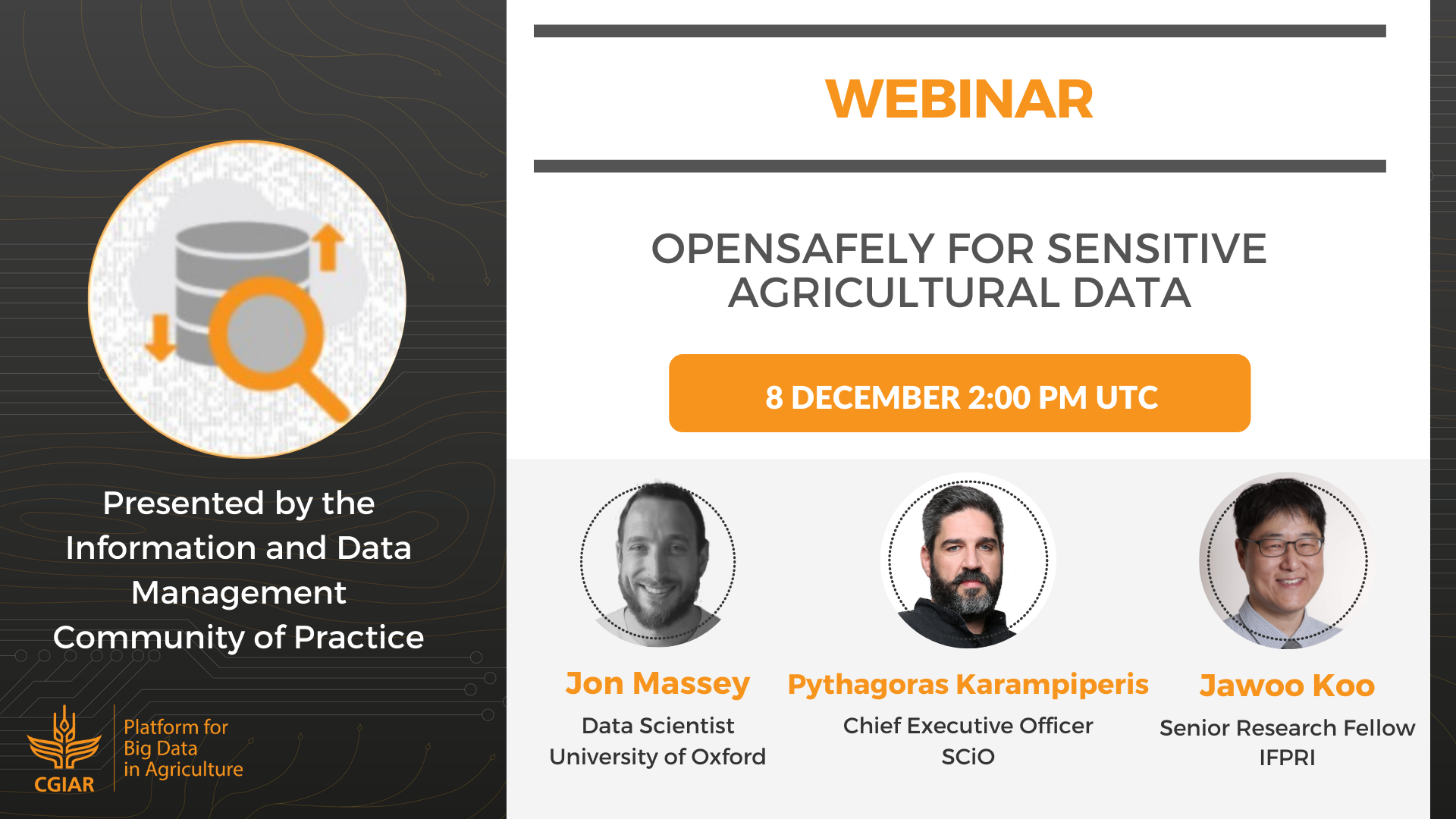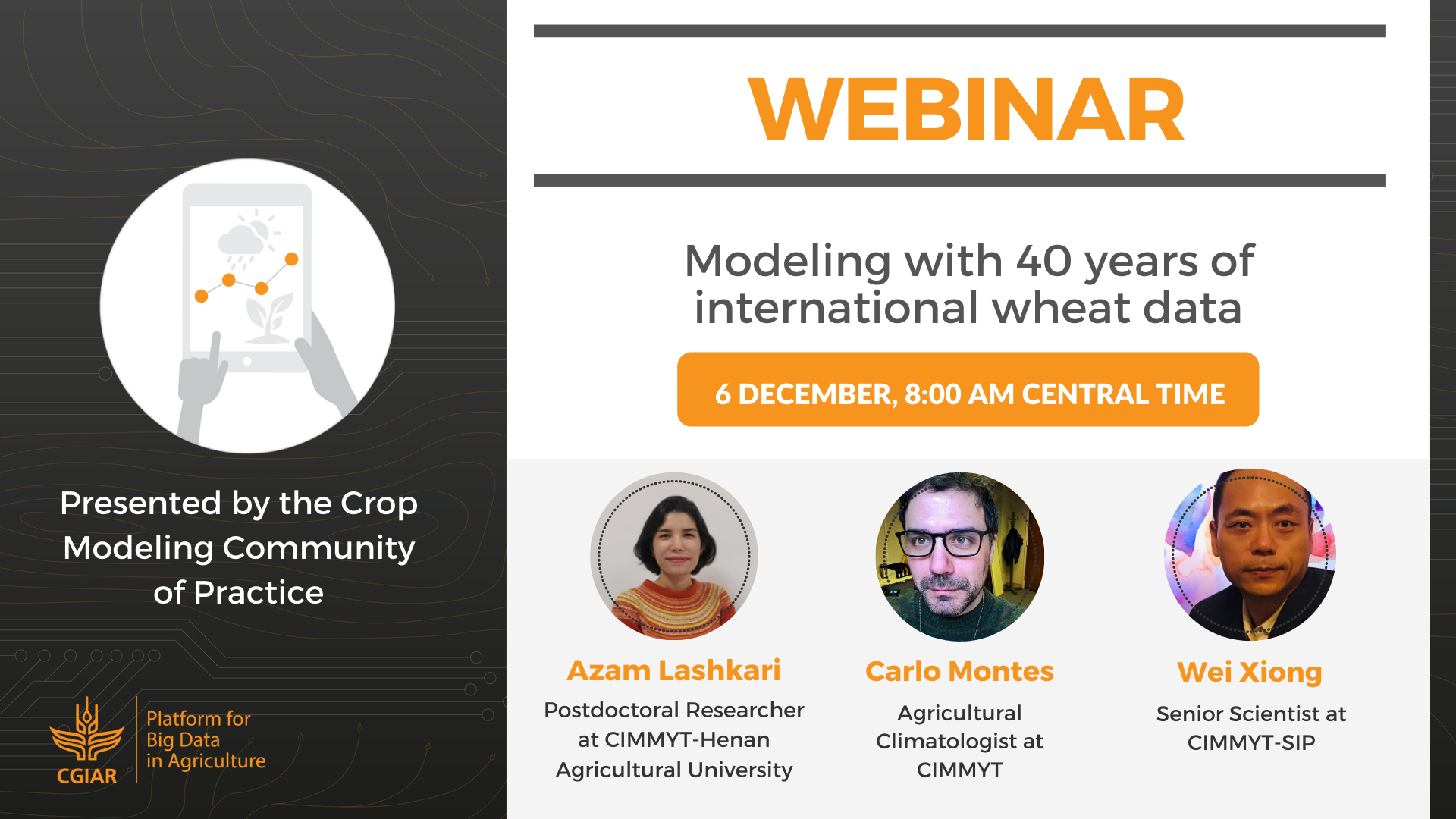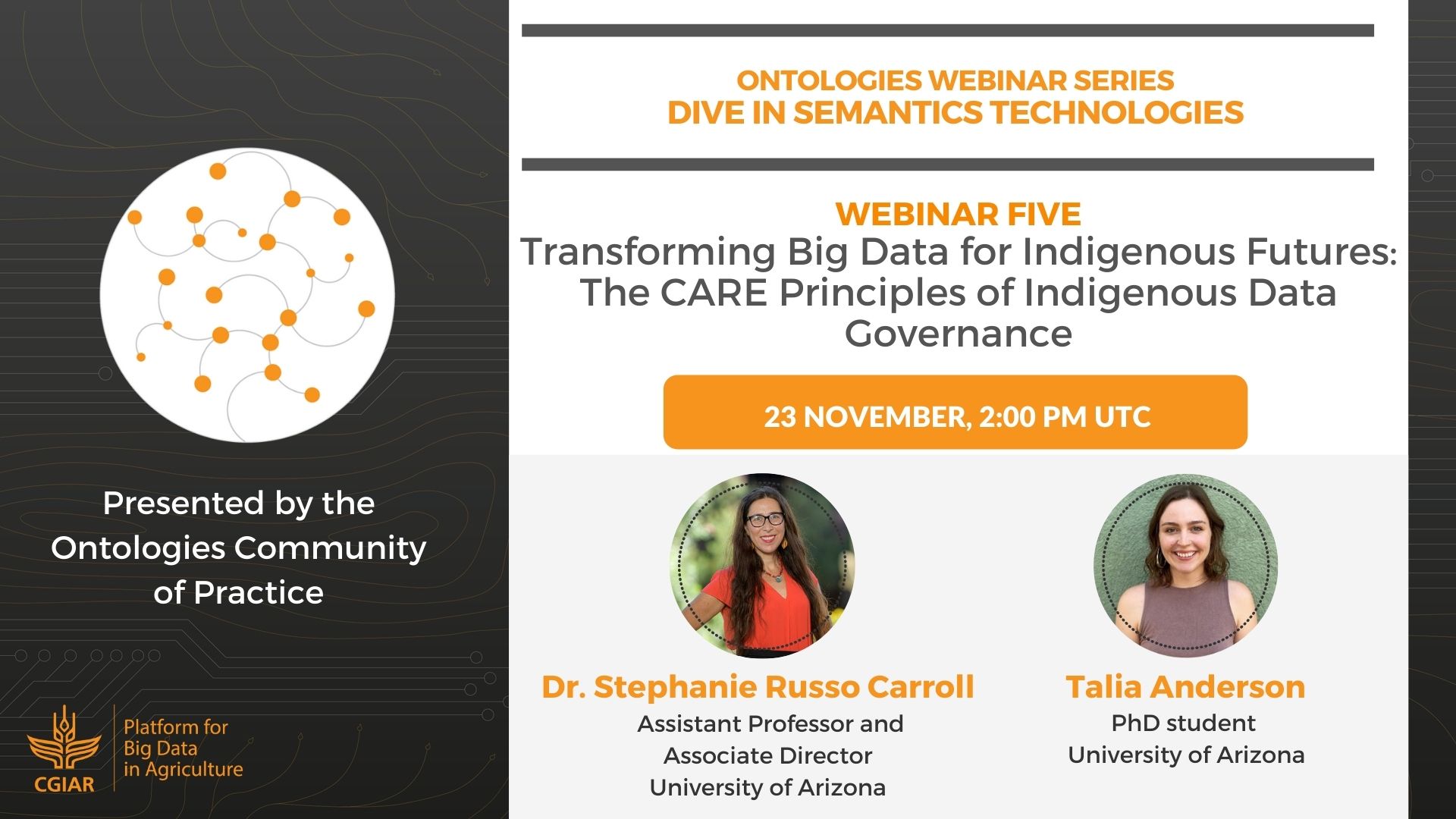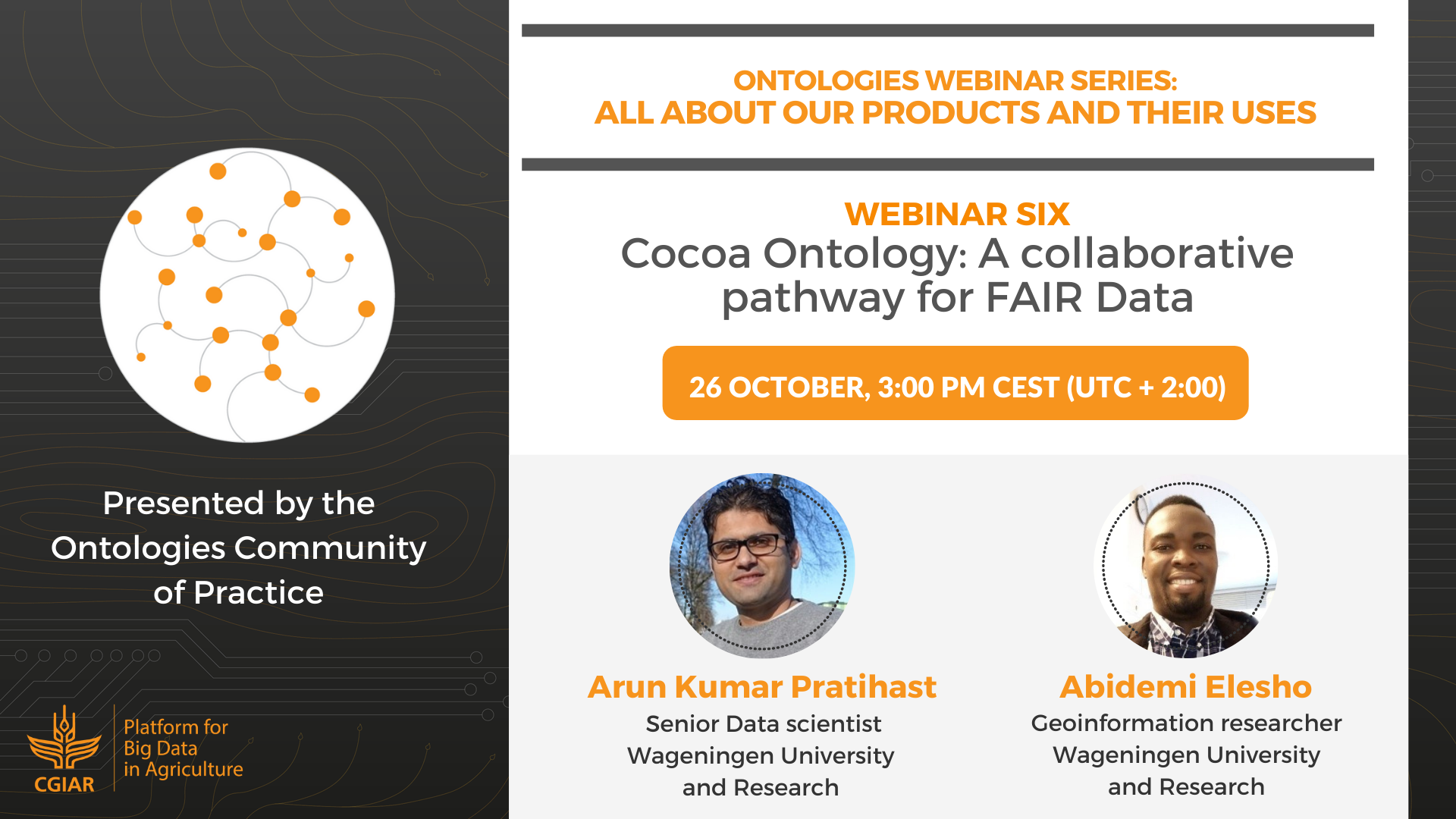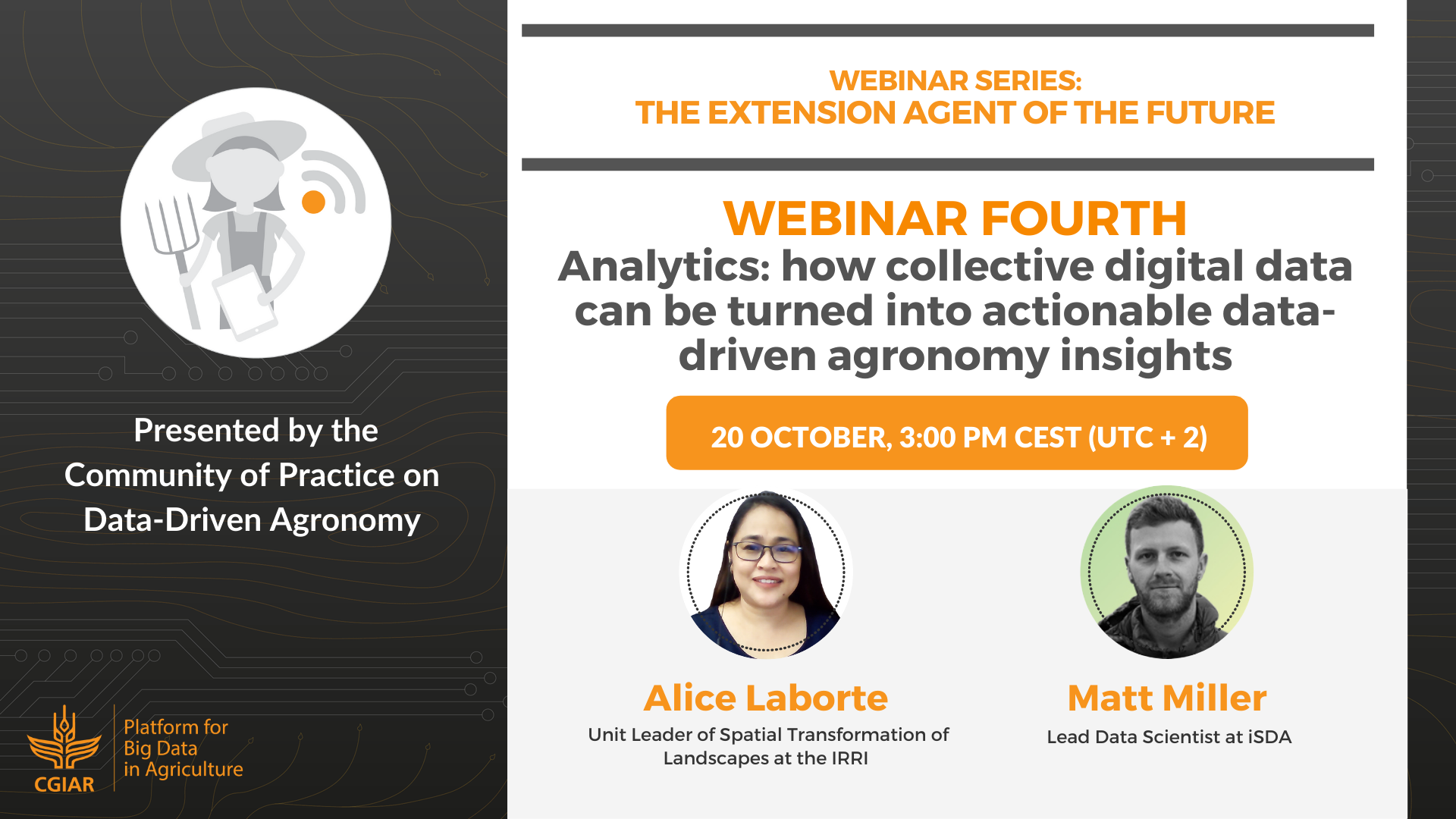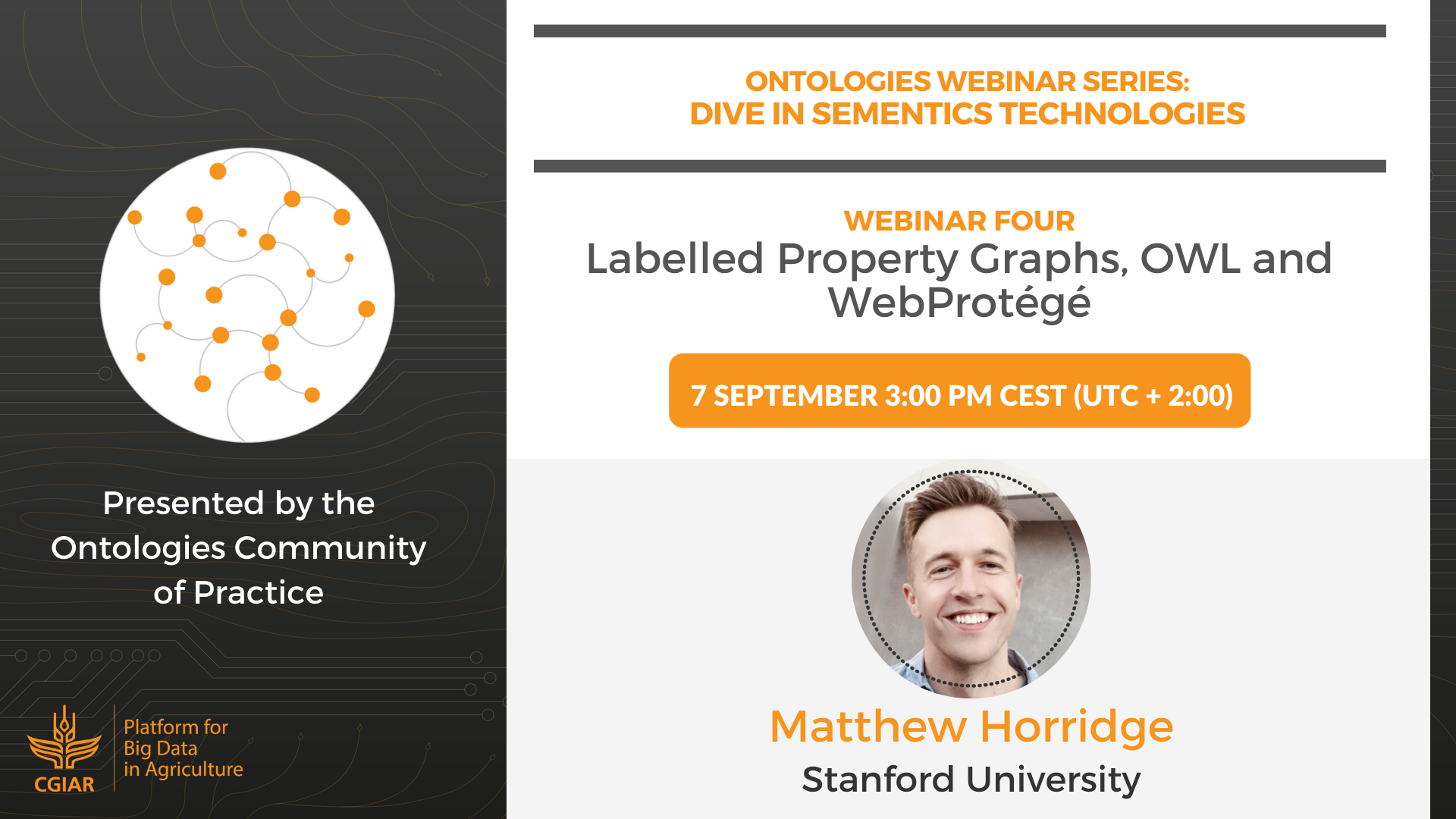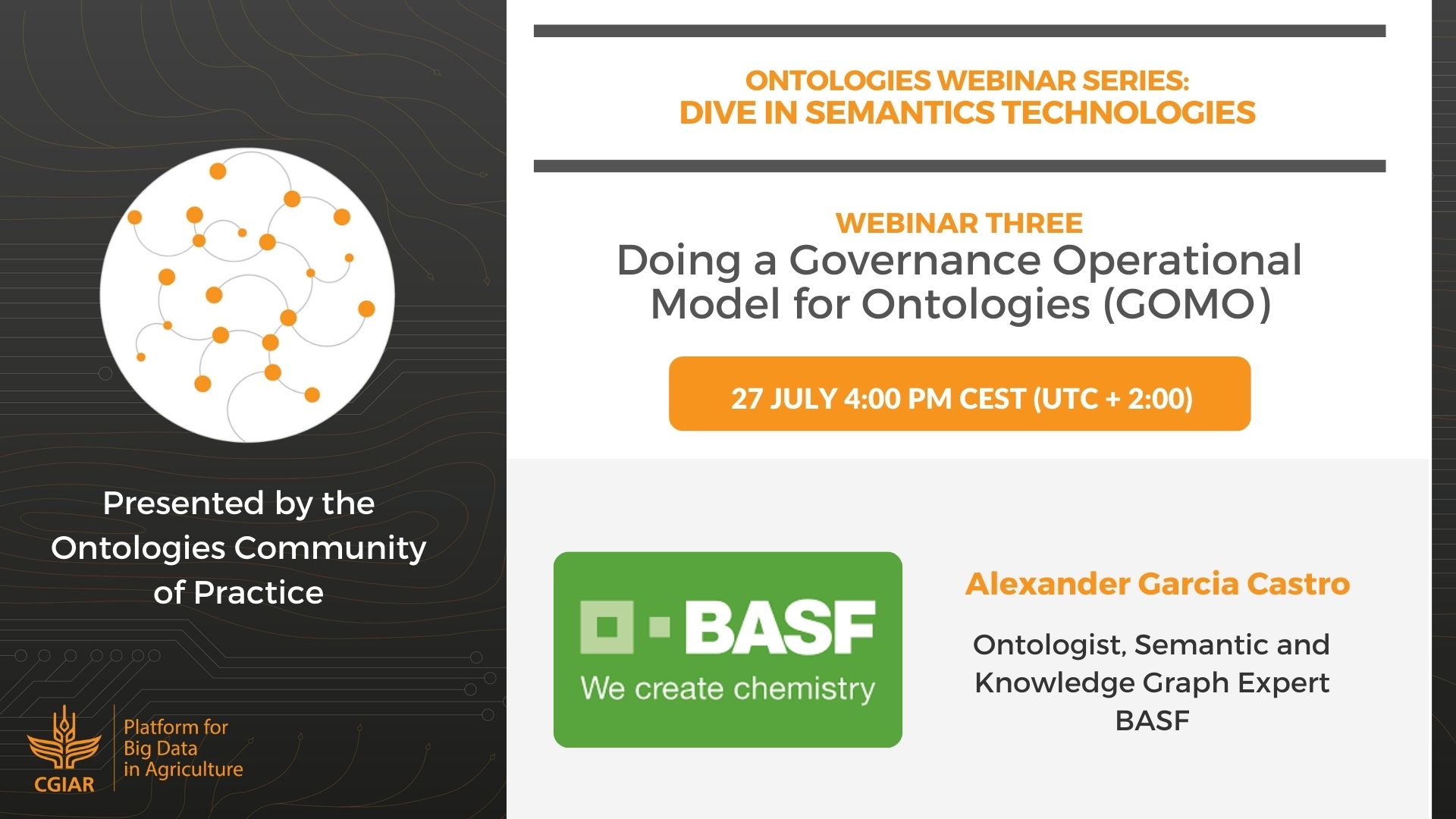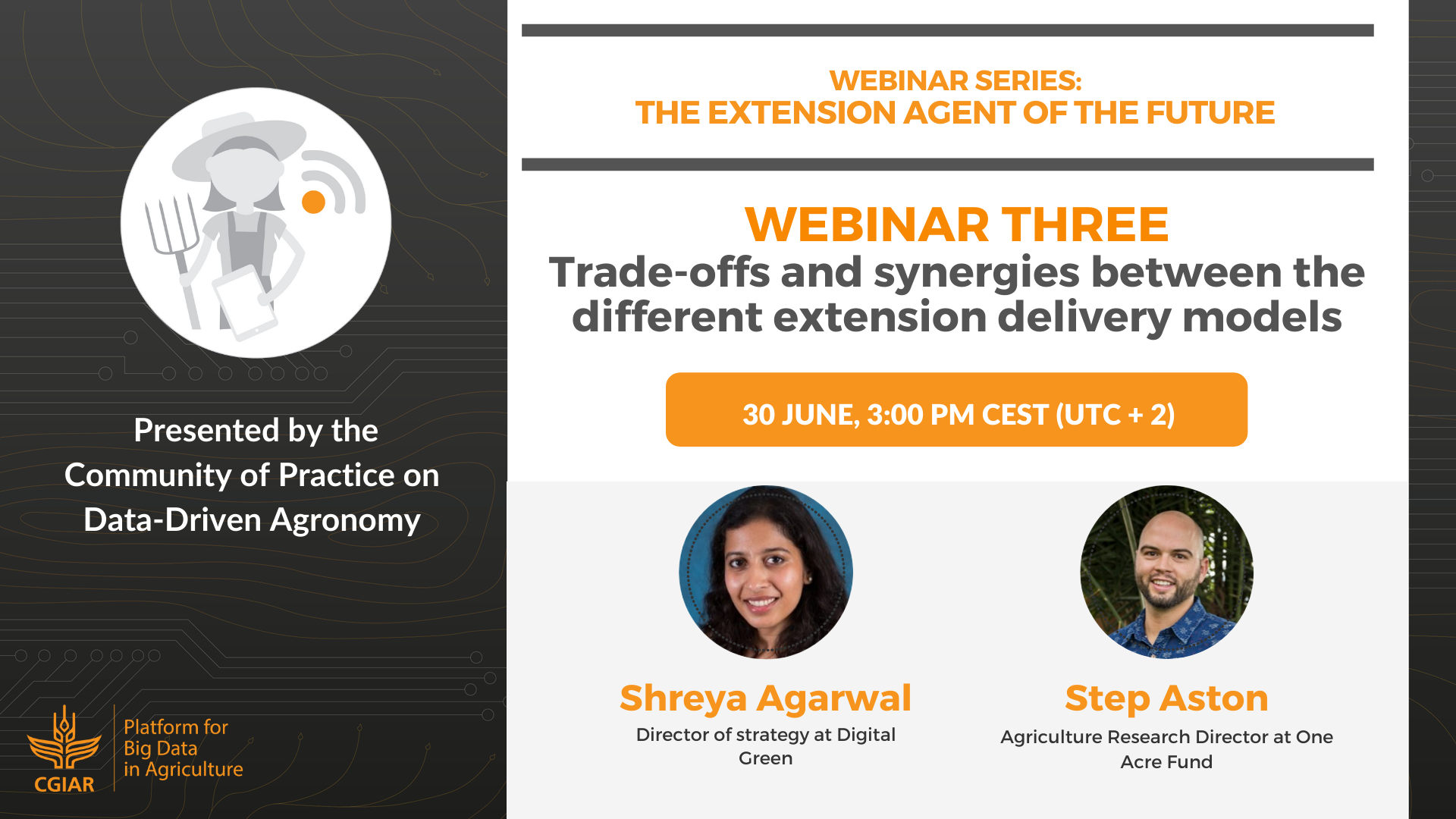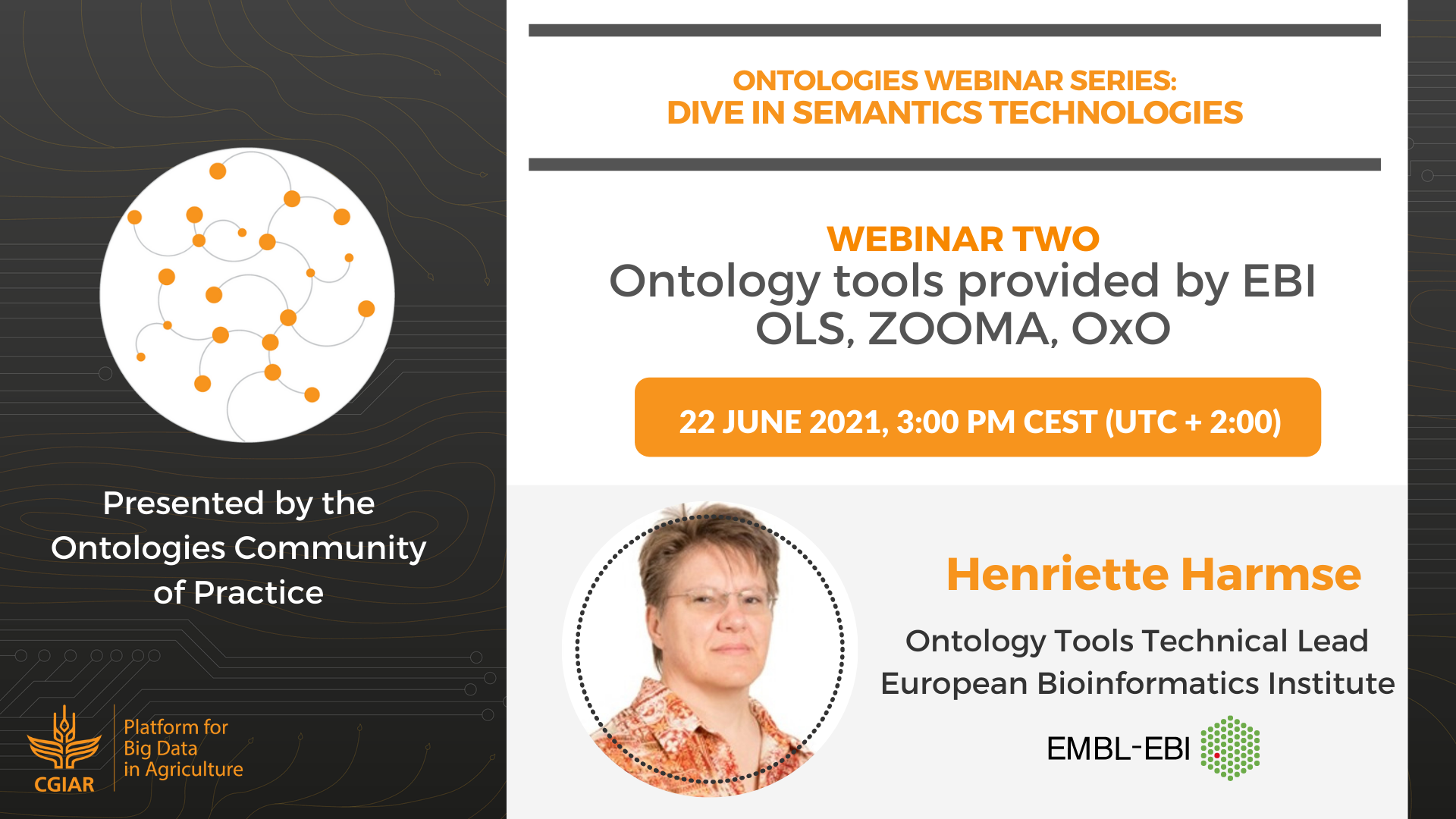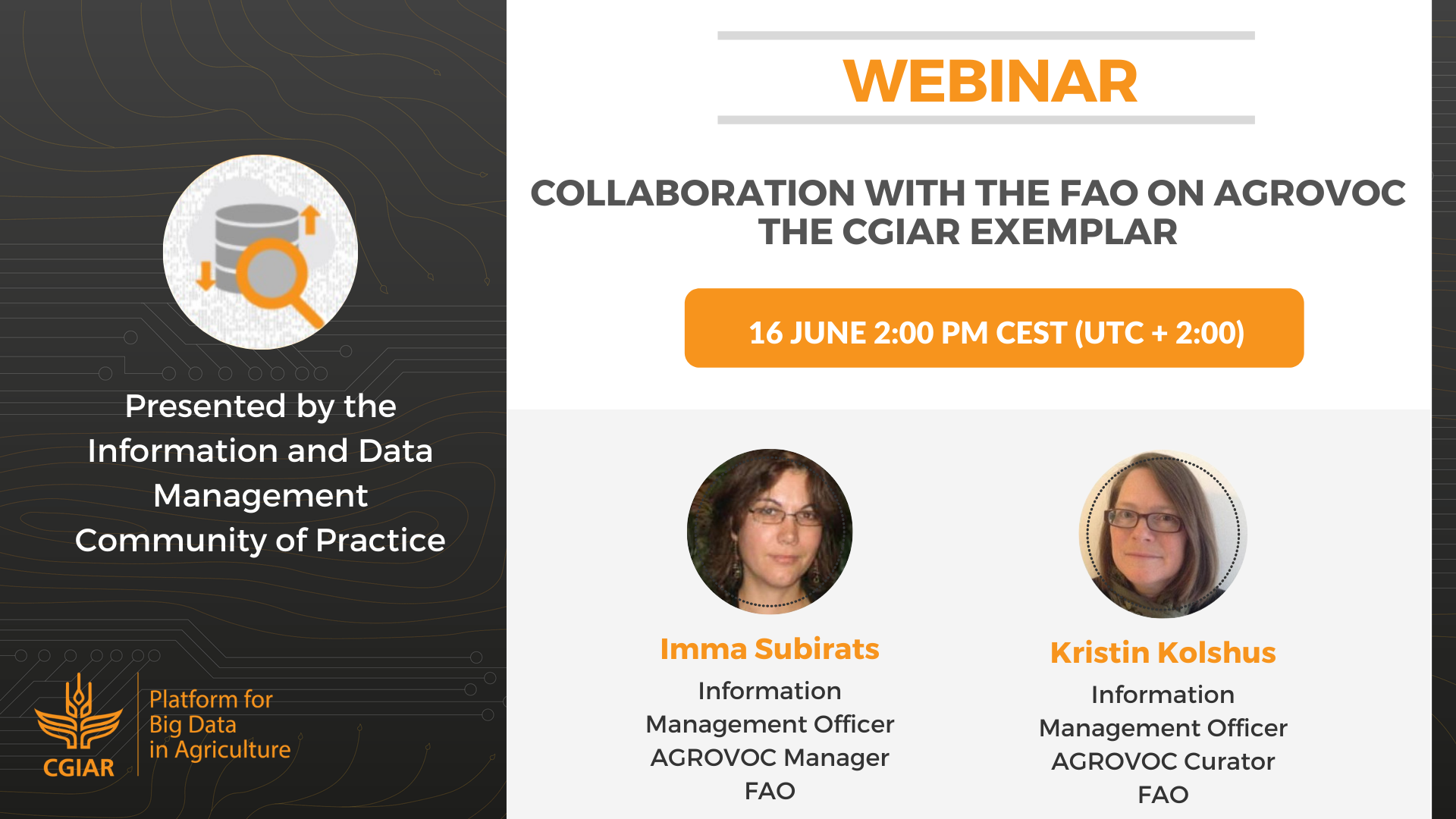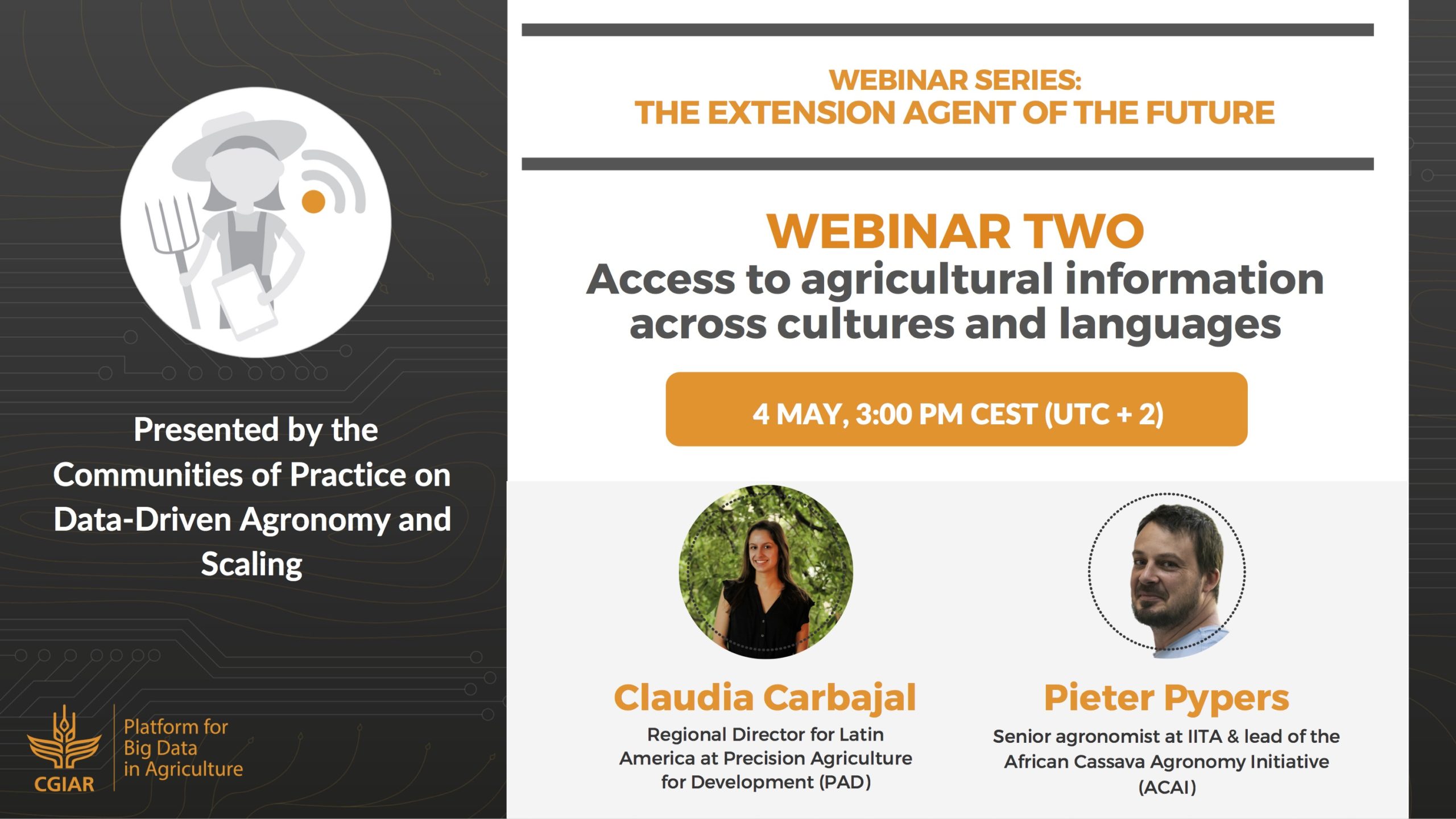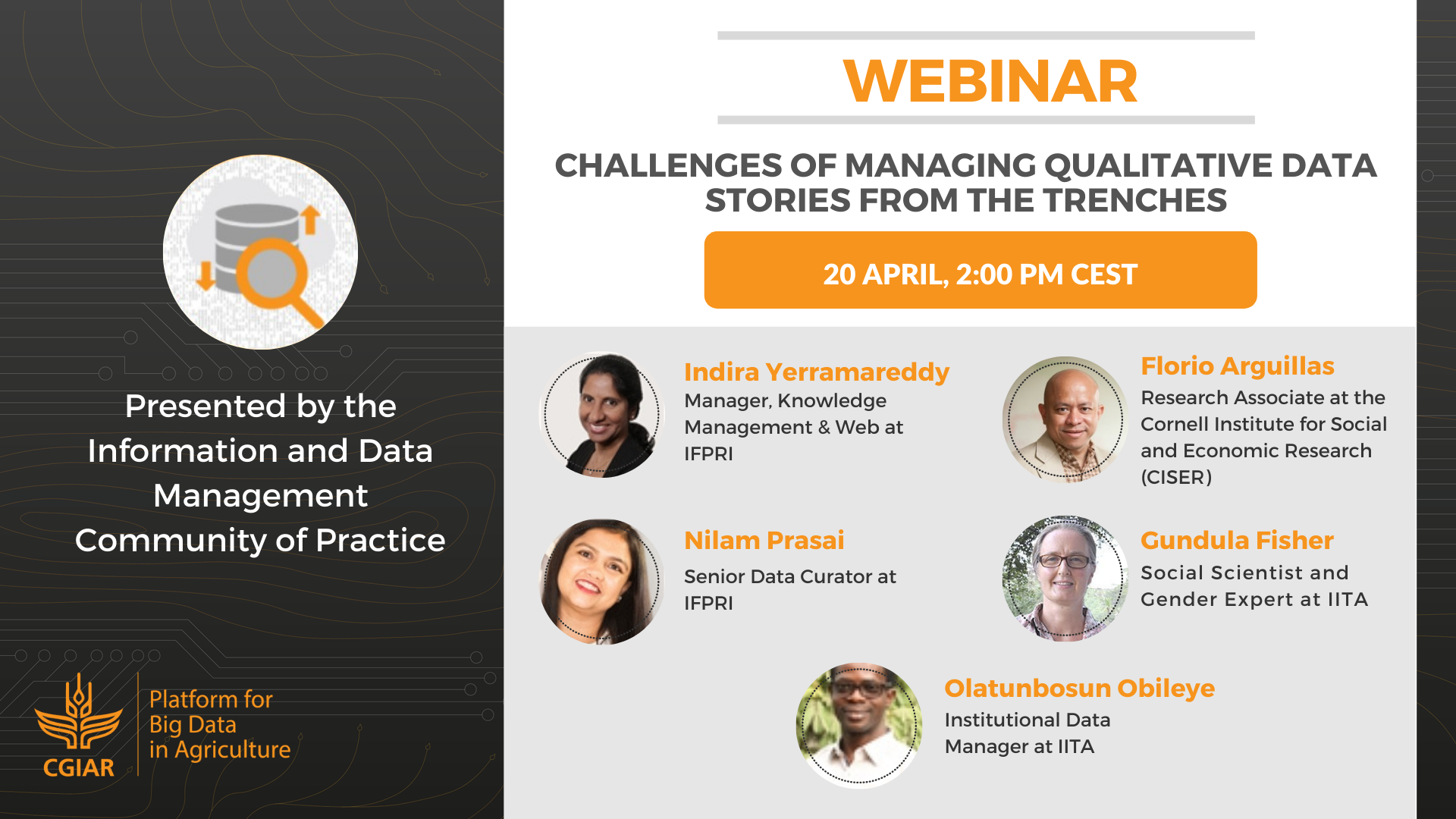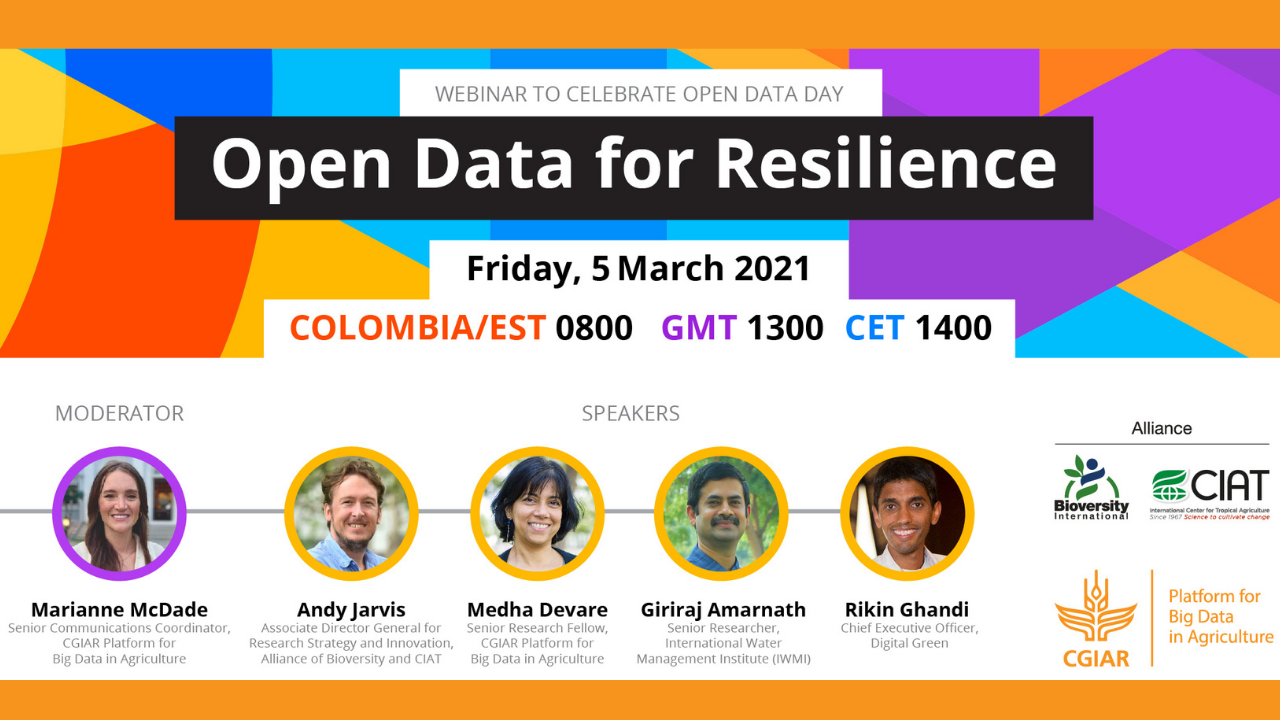Convene
Collaborate and convene around big data and agricultural development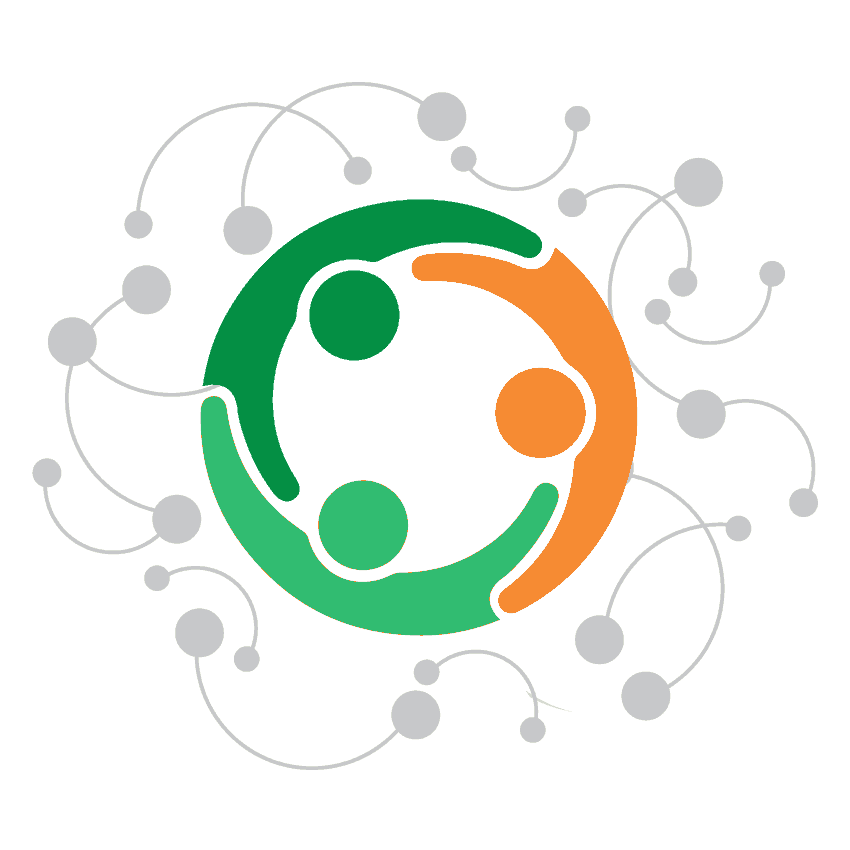
The Platform empowers CGIAR and its community to deliver on the potential of big data to bring results for smallholder agriculture.
It develops ambitious external partnerships, bringing together big data practitioners with global private sector brands, local start-ups, universities, and others to facilitate collaboration and ideation. It convenes an annual big data in agriculture convention, bringing key actors to CGIAR to generate innovations and democratize big data opportunities. The Platform builds capacity internally and externally on big data approaches in agriculture, developing communities of practice that will encourage interaction and further engage a range of actors to produce new ideas to solve development problems.
The Big Data in Agriculture Convention
The Platform organizes an annual Convention for Big Data in Agriculture as a way to bring together the community of scientists, researchers, technologists, development experts, policy analysts, donors, advocates, change agents, last mile implementers, and many others at the intersection of big data and agriculture.
The goal is embracing big data approaches to solve agricultural development problems faster, better and at a greater scale than ever before.
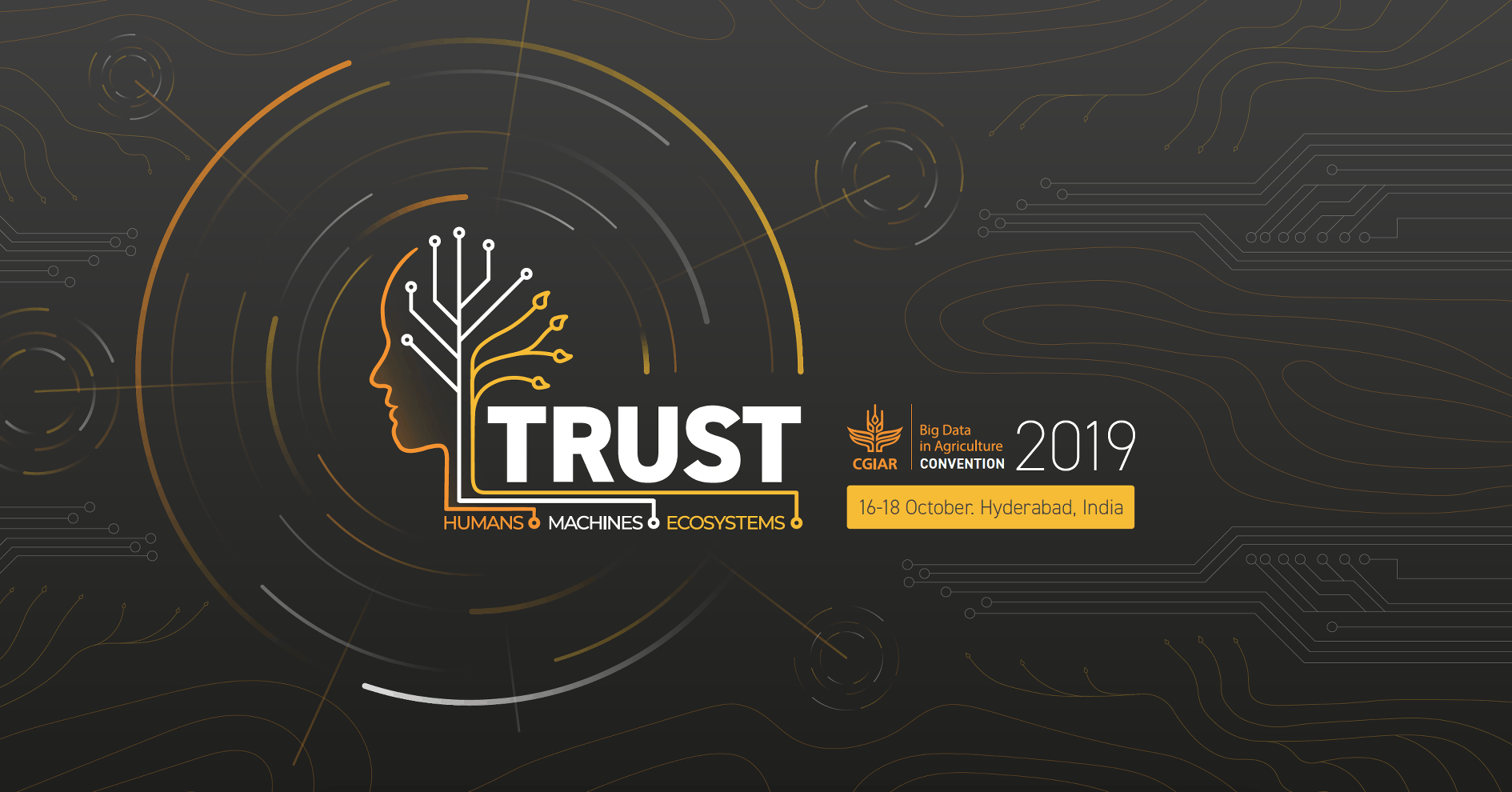
Convention 2019
TRUST. Humans. Machines. Ecosystems
Building resilient global food security requires us to navigate a complex net of interactions between the biosphere, economy, technology, and society. Machines and machine-to-machine systems shape and accelerate our social and economic lives, even as climates and ecosystems may seem destined to continue on a tragic path. Our ethical frameworks, our human communities, and our institutions struggle to stay abreast the rate of change. We can no longer consider distinct facets of food security in isolation; we need holistic solutions. To claim these potential solutions we need trust: in institutions, in firms, in dynamic and expanding human communities, and in the technologies themselves that can help us build the future.
The 2019 Convention will be hosted by The International Crops Research Institute for the Semi-Arid Tropics (ICRISAT) and held at their campus in Hyderabad, India during 16-18 October. We hope you will join us to bring these efforts together in pursuit of holistic solutions to feed the future – byte by byte.
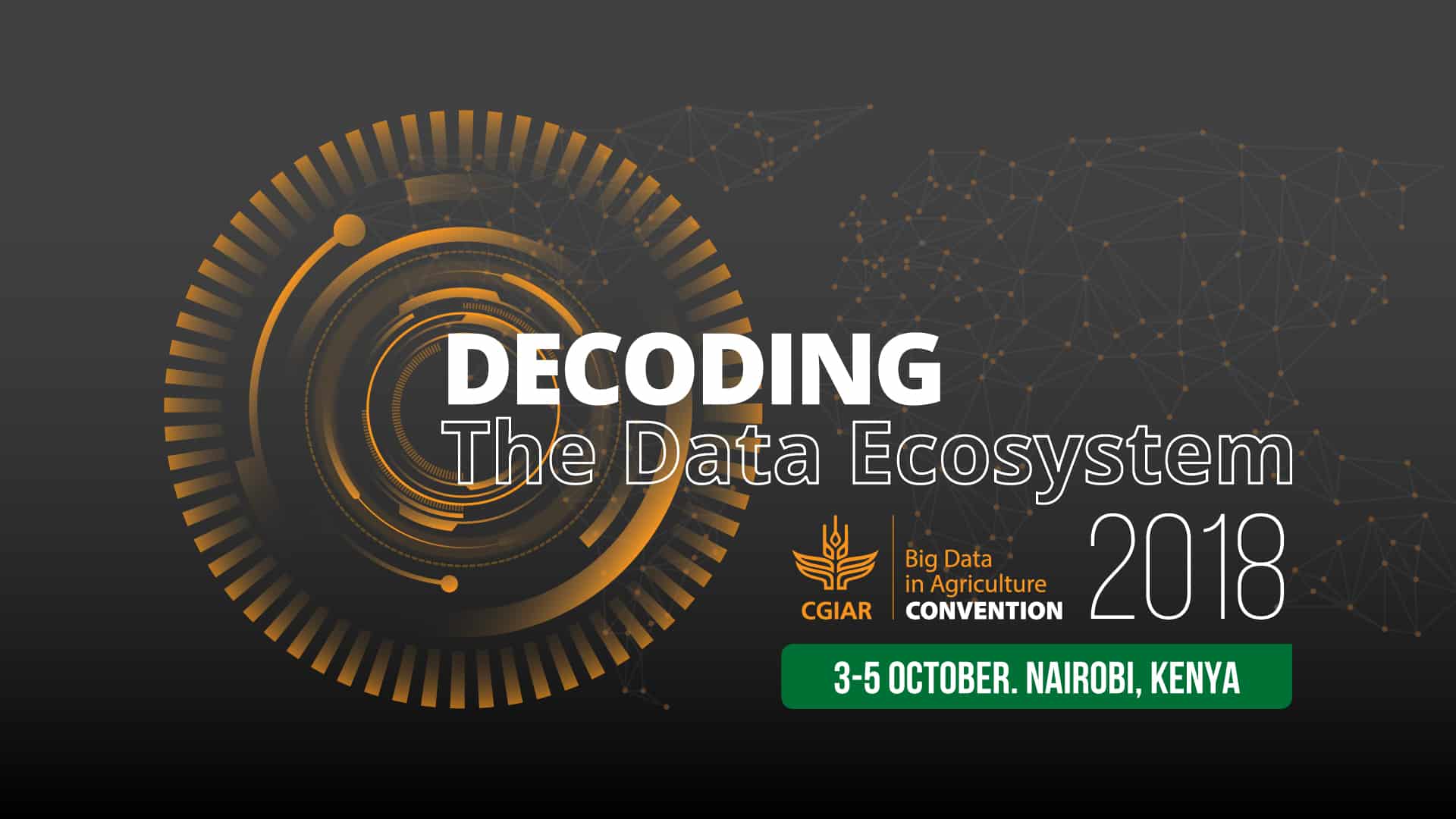
Convention 2018
Decoding the Data Ecosystem
The 2018 Convention will focus on Decoding the Data Ecosystem. Participants will dive into ways the data ecosystem for food security can integrate with real ecosystems worldwide, from the global to the local, across public, private, and non-profit goods. The Convention will take place at the campus of the World Agroforestry Center (ICRAF) and will be co-hosted by ICRAF and the International Livestock Research Institute. It is a great opportunity to highlight data-driven approaches to multi-scale food systems analysis, landscapes, ecosystem services, and the special role of animal science in building resilient food systems worldwide. It will offer three days of focused, action-based discussion to find commonalities across research institutes, governments, and private organizations set the stage for a productive and data-driven year ahead.
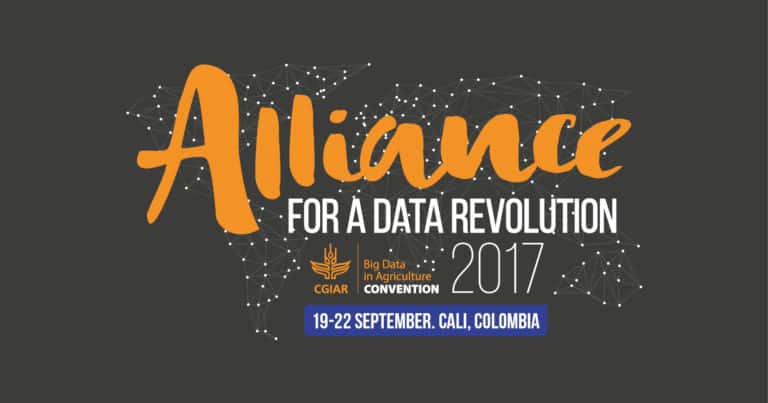
Convention 2017
An Alliance for a Data Revolution
The first Convention for CGIAR Big Data in Agriculture Convention took place in September 2017 at the International Center for Tropical Agriculture’s headquarters in Cali, Colombia . It convened some 300 global innovators, researchers, and thought leaders from public, private and non-profit partners.
The content and attendee list was carefully curated to foster new alliances and advance the discipline of digital agriculture for CGIAR and the sector. The Convention was an important vehicle for recruiting new Community of Practice (CoP) members, and attendees identified critical policy, infrastructure, and investment priorities for the agriculture development sector and contributed to a genuinely multi-stakeholder plan of action for the Platform.
Communities of Practice
As problems in society have become more complex and the nature of solutions more independent, extension systems have increased pressure to work across traditional expertise, as well as geographic and institutional boundaries to leverage maximum impact from resources. In response to this pressure, networks and communities need to emerge as the basis for solving problems rather than single institutions.
The Platform’s communities of practice (CoP’s) aim to leverage technology and new data resources to create broader and deeper impact in programming, as well as to build capacity internally and externally on big data approaches in agriculture.
The Platform established these Communities of Practice (CoPs) across Centers to work towards defining data standards and interoperability protocols, dovetailed with the Open Access and Open Data initiatives of the System Management Office.
They foster collaboration spaces and opportunities, facilitate connectivity and sharing of methodologies, and support the organization of capacity-building workshops.
Data-driven Agronomy
A community aimed at collectively strengthening the innovation of technology and big data to tackle an array of agricultural challenges – including the closing of yield gaps – to reduce hunger and poverty and transform global agriculture.
Crop Modeling
A community that encompasses a wide range of quantitative applications, based around the broad concept of parametrizing interactions within and among the main drivers of cropping system.
Geospatial Data
A community that facilitates CGIAR’s research using geospatial data and analysis, undertaking activities to bring spatial scientists together through a series of coordinated communications and activities.
Livestock Data
A community that brings together livestock and data modellers with project implementers and decision makers from industry, the public sector and NGOs o drive informed livestock decision-making through the better use of existing data and analyses.
Ontologies Data
A community that focuses on the use and application of semantics for data harmonization at the levels of collection and storage, and for data interoperability and data discovery following the FAIR principles.
Socio-economic Data
A community that works on strategies to make the data interoperable, in order to enhance the impact and the use of CGIAR-related socio-economic data for partners in development.
Capacity Building
Navigating the GDPR
The Platform launched an online training website providing a space for learning and sharing knowledge. In response to the General Data Protection Regulation (GDPR), the Platform has provided an online course to help international agriculture for development researchers understand the implications the new regulation for their work.
Access GDPR online course
Webinars
The platforms holds webinars on topics such as digital extension, interactive voice response, privacy guidelines and more.
The Platform empowers CGIAR and its community to deliver on the potential of big data to bring results for smallholder agriculture. A key part of the Platform’s Convene Module strategy is to develop ambitious partnerships to facilitate collaboration and ideation and build CGIAR capacity on big data approaches.
The Platform has enabled access to shared services in support of CGIAR research. The services described below are available to all CGIAR researchers. If you would like to benefit from any of these services, please contact Jawoo Koo at j.koo@cgiar.org
Secure sharing and transfer of large datasets
The CGIAR Platform for Big Data in Agriculture activated a subscription to Globus, a grid computing alliance providing tools for secure management of data. The Platform is testing Globus to determine if it can become a pan-CGIAR data infrastructure.
The subscription offers comprehensive data management capabilities for CGIAR researchers, including file sharing, easy and secure transfer of large datasets, access to cloud storage, protected data management with the setting of appropriate access permissions for sensitive data, advanced endpoint administration, and much more.
Commercial satellite imagery
CGIAR has partnered with Maxar’s DigitalGlobe to accelerate machine learning solutions for agriculture. Under the partnership, CGIAR’s geospatial scientists will mine DigitalGlobe’s 100 petabyte imagery library using machine learning and the computational power of the company’s Geospatial Big Data platform (GBDX) to create more sophisticated baseline datasets in agriculture, plan new projects and monitor crop health, crop yield and the environmental impacts of farming.
The CGIAR Platform for Big Data in Agriculture conducted several trainings and provided technical assistance to CGIAR researchers to make the most out of satellite imagery and the processing platform GBDX. This is allowing scientists to leverage GBDX to examine land tenure (focusing initially on India, Ethiopia and West Africa), crop yield and crop production estimation, water resource conservation in South Asia, and pest and disease monitoring to develop early interventions (focusing initially on the fall armyworm in sub-Saharan Africa).
Gridded global weather data
The Platform secured access for CGIAR researchers to validated historical global weather data from IBM The Weather Company and from aWhere.
IBM The Weather Company provided a research subscription to validated gridded global weather data and invited CGIAR researchers to be early user-validators of a new global information service centered on short term (six month) seasonal probabilistic forecasts. aWhere provides global access to a real-time and historical record of all relevant weather variables including short-term weather forecasts.
Localized, accurate weather forecast can help inform farmers on when to plant, provide warnings and recommendations for pest and disease control and even optimal times to harvest to maximize profits. Access to quality historical weather data may prove to be a key capability for backtesting predictions about agro-ecologies and farming intensification.
High-resolution population data
The Platform facilitated unfettered access for CGIAR to global gridded population LandScan™ dataset through securing a subscription with Oak Ridge National Laboratory.
LandScan is a community standard for global population distribution data and is widely regarded as one of the best available population datasets. At approximately 1 km (30″ X 30″) spatial resolution, it represents an ambient population (average over 24 hours) distribution. The database is refreshed annually and, as of mid-2019, the latest dataset available is LandScan Global 2017.

